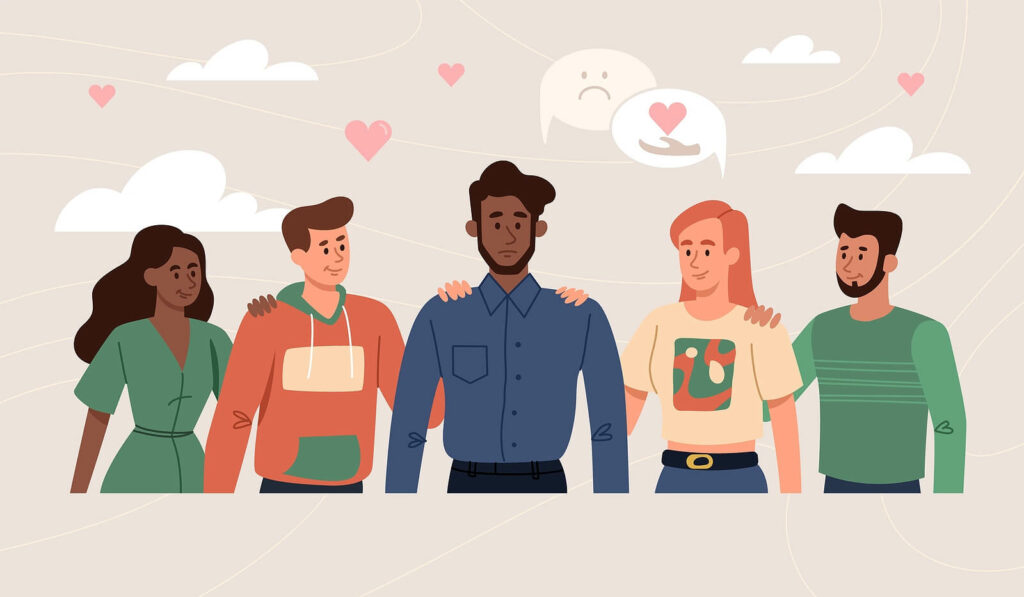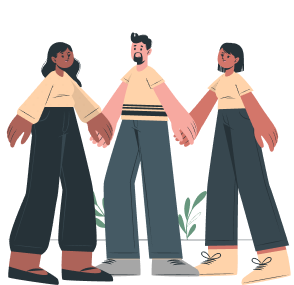What is Trauma Bonding?
Trauma bonding is a psychological response to abuse. It occurs when the abused person forms an unhealthy bond with the person who abuses them. Essentially, they are the dysfunctional attachments that occur in the presence of danger, shame, or exploitation committed by an abuser.
What are the Symptoms of Trauma Bonds?
- Obsessing/ Difficulty controlling obsessive thoughts about people who have caused harm even if they are long gone
- Continuing to seek contact with people whom you know will cause further pain
- Going “overboard” to help people who have been destructive or harmful
- Being a “team” member when obviously things are becoming destructive in a particular relationship or interpersonal dynamic
- Continual excessive people-pleasing behaviors particularly in a cyclical abusive dynamic
- Repeatedly trusting people who have proven to be unreliable
- Inability to retreat from unhealthy relationships
- Strong desire to be understood by those who clearly do not care
- Choosing to stay in conflict with others when it would cost nothing to walk away
- Undying loyalty to an abuser
- Covering up or making excuses for abuser’s behavior- Includes lying to close friends and family about abuse
- Internalization of abuse and harm caused

Types of Trauma Bonding Situations/ Environments
There are many types of abusive situations in which trauma bonding can occur, and emotional attachments are common in abusive situations. They are nothing to be ashamed of, as they result from our brains looking for survival methods. It is most likely to happen in a situation where the abuser makes a point of expressing love to the person they are abusing, and where they act as if the abuse will not happen again after each time, it does. It’s that combination of abuse and positive reinforcement that creates the trauma bond or the feeling of the abuse that the abuser isn’t all bad. This dynamic causes the victim to feel that the only safe place is with their abuser who has their best interest in mind.
Most common types of trauma bonding:
- Domestic/ Intimate-Partner violence and abuse
- Pedophilic/ grooming relationships
- Kidnapping
- Cults
- Sexual Abuse
Impact of Trauma Bonding and How to Break the Cycle
Anyone who has trauma bonded to their abuser may experience continued trauma responses, depression, anxiety, and even PTSD symptoms. Some studies suggest that delay in support and therapeutic interventions can prolong this symptom and even continue the cycle.

Experiencing trauma bonding may also increase the likelihood of an intergenerational cycle of abuse, especially in familial and domestic abuse environments.
Breaking the cycle:
- Identifying trauma bond situations and working towards leaving the relationship/environment
- Creating a safety plan and identifying resources, and support systems to leave an abusive situation
- Seeking therapeutic spaces whether trauma therapy or supportive group therapy with other survivors
- Coping ahead to identify triggers and cyclical patterns to prevent trauma bonds from reoccurring.
If you or a loved one are a victim of domestic violence or abuse, contact the National Domestic Violence Hotline at 1-800-799-7233 for confidential assistance from trained advocates.
If you’d like to work toward healing with a mental health professional, Kind Mind Psychology offers trauma treatment in Charlotte, NC. Our team of trauma therapists is here to support your journey.

Break Free from Trauma Bonds and Reclaim Your Life: Trauma Therapy in Charlotte, NC
Recognizing the signs of trauma bonding is the first step toward healing and breaking free from harmful cycles. At Kind Mind Psychology, we provide a safe, supportive space to explore these patterns and work toward empowerment and recovery. Our experienced trauma therapists are here to help you create a path to healing, build resilience, and regain control over your life.
- Reach out to Kind Mind Psychology today.
- Explore more about trauma recovery by reading our blogs.
- Start your journey toward breaking the cycle of trauma and embracing a healthier, more fulfilling future.
Other Services We Offer in New York and Charlotte, NC
Beyond trauma and EMDR therapy, we offer a variety of supportive options to meet your needs. For those in the LGBTQIA+ community, we offer affirming and compassionate LGBTQ+ therapy, where you can explore and embrace your identity. We also provide couples therapy to help partners build stronger, more meaningful relationships. In addition, our Dialectical Behavioral Therapy and Cognitive Behavioral Therapy can help you no matter what you’re facing.

